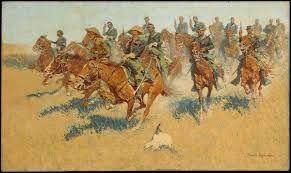Improvements Come Slow and Steady: Running for Fitness
I’ve started another cycle of training for a marathon in the
fall. I’ll probably sign up for the Route 66 marathon in Tulsa. At least that
way I won’t have to travel like I did in April. I’m of two minds on running.
With a marathon in the near future, I force myself to commit more to running
during the week. I’ve gotten used to the rigors of training. Without the schedule
I could commit more to weights and regular gym cardio. Running takes
over at a certain point. Once we start to hit the 14 and 16 mile distances on
Saturday, it begins to feel different. Your body learns how to suffer more
efficiently.
Running Takes Over
But if I stop doing marathons I could still run, but with an easier schedule during the week. I used to do that every Sunday, before I went back to the running group. It’s tempting because I’d like to spend more time lifting weights again. I still do a little weight training during the week but it’s mostly in service to running. Legs are a must. That takes at least one whole day. The next day it’s a halfhearted work-load for biceps and chest. Mostly I’m too tired to lift anything heavy. I’d have to start eating a lot of protein at breakfast and putting on pounds again. You can’t lift without energy, especially once you pass 40 years old, and I don’t eat as much when I run.
I was never a true body builder anyway, but I did put a lot of effort into work outs. I wasn’t particularly healthy though. My eating habits were awful and I weighed at least 20 pounds more than I should have. Not that I’ve had a dramatic turnaround but I’m generally in better health. I guess I don’t want to go back.
The Distance Puzzle
I’d like to figure out this enigma that is the marathon. The
last one was terrible. I was sick and exhausted way too early in the race and
I’m not quite sure why. That’s not different from a Saturday morning run in the
spring. On any given day, it might seem like you’re carrying sandbags, or the
heat is unbearable after just a few miles and water isn’t cooling you down. I
had to pack it in one morning, last year, after a short 3 mile run. My
breathing was labored and I couldn’t find my rhythm. You can’t predict when the
suck will happen but it typically does at least once per session.
A lot of what’s pushing me is how disastrous the last marathon turned out. I hit the wall at 13 miles and had to jog/walk the rest of
the way. I won’t say it’s humiliating but it also doesn’t sit right with me. It
might be smarter to just train with the group and skip the events. That would
be cheaper at least. Part of me likes telling people that I run marathons. It’s
really the mildly impressed look that does it for me. It’s vanity really. I
need approval from friends and strangers. Whatever the time, whatever the pace,
in the end it’s all about respect.
I’m exaggerating a little.
Consistency Over Wins
Mostly I like
improving and climbing things that used to be obstacles. When I first started
jogging I couldn’t go much beyond 6 miles. I was always in decent shape and
even ran short distances for exercise. The Army makes runners out of helpless
kids, even the chunky ones who swore they’d never be able to run the length of
a football field. A woman in my Tulsa group told me she couldn’t run a mile
when she first started. This was after she turned 40. She broke down into tears
after her first 5K. The sheer pride she felt in completing a race set her on a
trajectory towards life-long running. Now she runs a handful of marathons every
year. I can’t keep up with her.
We all start at
different levels. I usually take the slow and steady climb to better, while
others quickly improve and surpass me. But I stick with it when so many have
stopped. I’m slow and careful but I always get there. The goal this year is to
be stronger than the last time and improve the time. I’m reluctant to set time
goals until I have a few more events under my belt.





